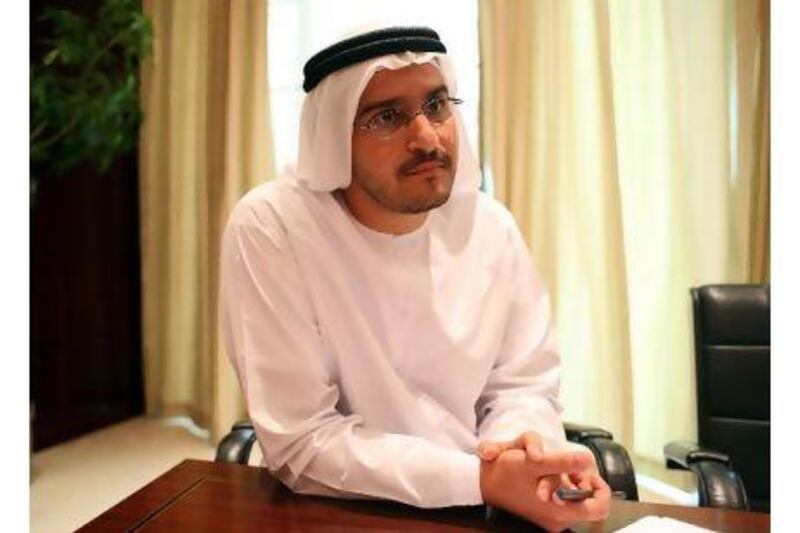ABU DHABI // The head of the capital's health authority has called on insurers to make patients see a GP first, rather than going straight to a specialist.
Zaid al Siksek, the chief executive of the Health Authority-Abu Dhabi (HAAD), said that refusing to cover for specialist treatment without a referral would save money and allow better provision across the system.
While experts say primary health care in the region needs more resources, many Arab patients prefer to go directly to a specialist.
That can be wasteful, say experts. There is no guarantee that patients' self-diagnoses will lead them to a doctor with the correct speciality. And many ailments can be treated more cheaply, and just as well, in a primary health centre.
Mr al Siksek told The National in an interview during the World Health Care Congress, held in the capital last week, that insurance companies have a "fundamental role in directing patients to use health care in an efficacious and cost-effective way".
It would be a great help, he said, to channel patients towards primary health care instead of burdening "overwhelmed" specialists.
Seha, which runs public hospitals and clinics in the capital, already requires proof that patients have seen a GP before it will refer them to a specialist.
However, many patients still have insurance cards that give them direct access to specialists. Mr al Siksek emphasised that change comes not only from above but from below.
"The public's health is not the responsibility of a doctor or hospital or authority alone; it starts with the individual."
People's understanding on how much they are responsible for, he said, has to change.
"I am not necessarily keen to make sure there is a public health expert in every hospital," he said, "as much as I'd like to have one in every school, advising children early on nutrition and exercise."
Dr Oliver Harrison, director of public health and policy at HAAD, said insurance regulation could kick-start the process.
"People are making the best choices they can with the information they are provided," he said.
"We need to think about the demand side and educating the individual, but at the same time, we have to look at the supply side and see what we can do to enhance primary care, whether through doctors, nurses, diabetes educators, and others, and ensure they are the easiest people for the patient to reach."
Dr Harrison said more primary health facilities are needed. "There has been a 35 per cent growth in primary health care in Abu Dhabi over the past year, in terms of facilities, doctors, and so on, and I believe Seha will be opening seven more facilities next year," he said.
Abu Dhabi's young population - the average age is 28 - is relatively undemanding of hospital facilities. About 10.5 million of the 11m healthcare encounters last year were as outpatients. That, he said, is the demand primary health care needs to meet.
Dr Michael Bitzer, chief executive of the national health insurer Daman, also said an incentive system could have an effect.
Speaking during the congress, he suggested "reward[ing] hospitals and clinics that achieve excellent treatment results, while penalising those that do not fully meet healthcare outcomes expectations".
Mr al Siksek also suggested rewarding individuals who stay healthy and therefore use their insurance less. "We wouldn't need doctors as much if people weren't as sick; our biggest challenge is the burden of chronic disease," he said.
Dr Helmut Schuhsler, managing partner at TVM Capital, which finances healthcare companies, likewise suggested that insurers could differentiate between their customers based on how healthy they are.
"If you have a car accident, you end up paying more on your [car] insurance, but we do not have a system like this in health care," he said. "Provide patients with the information on the state of their health so they are responsible for how they behave."
Dr Harrison said doctors and nurses are not trained "in the broader preventive techniques that improve the wellness and well-being of a population".
"Hospitals," he said, "traditionally don't play a role in keeping people well but treat them when they are sick instead."
The challenge in Abu Dhabi, he said, is to change that.
Vidar Jorgensen, the chairman of the congress, said no country could afford to rely on simply diagnosing and treating disease. "We need continued innovation so we can work on predicting and preventing disease," he said.
Mr al Siksek called for greater competition between facilities. "There is still room for much improved development in the outcome that is delivered by healthcare professionals and facilities," he said, adding that part of the problem is the "high turnover of staff".
More Emirati doctors and nurses could help, he said. "That would reduce turnover, which we need to do because when turnover is high, the quality changes, depending on the providers delivering the care."





